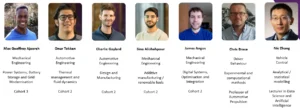ITT4 - our first hybrid event!
Posted by: Onur Tokkan
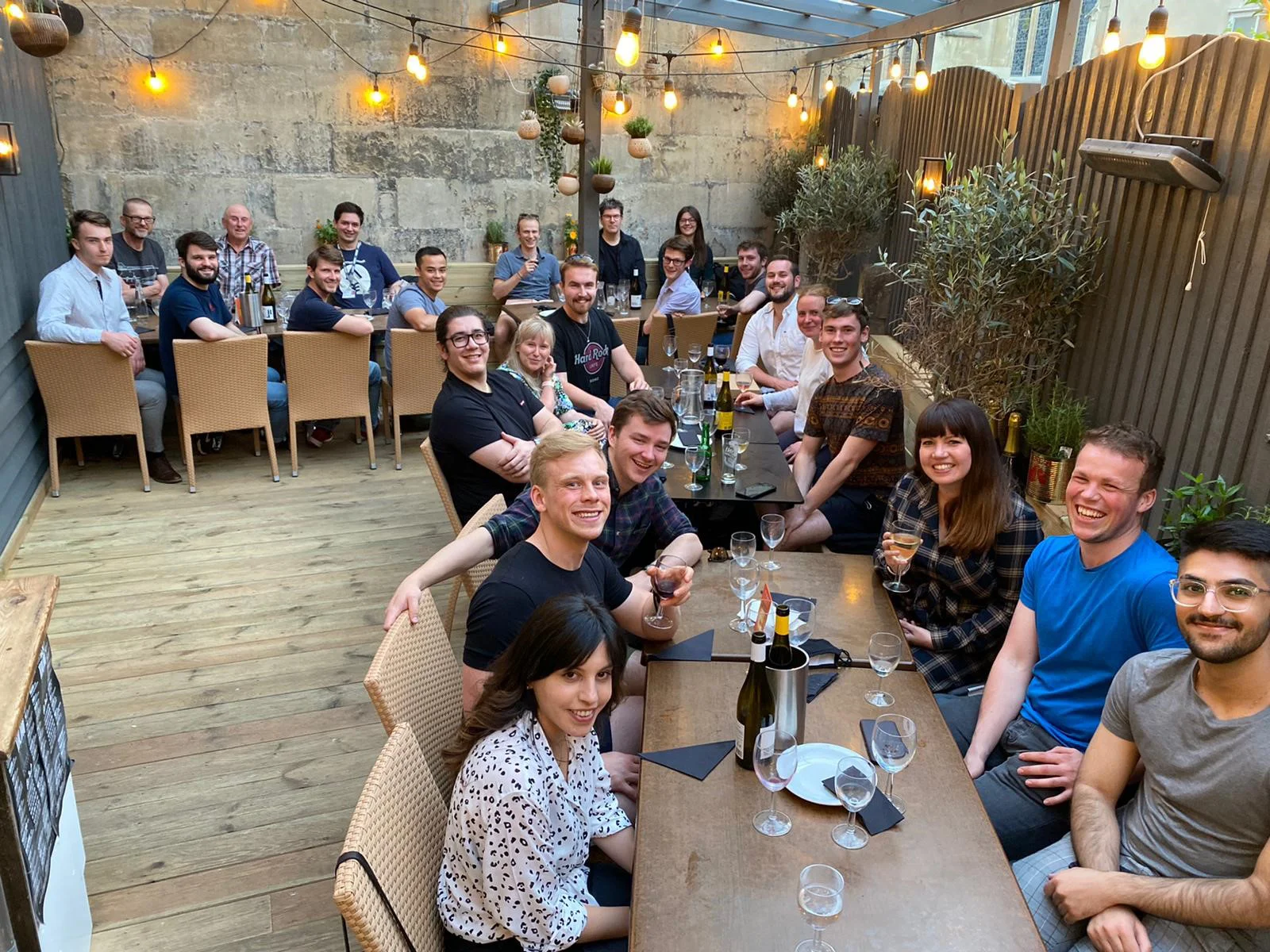
This was the first hybrid event that AAPS have ran, and the first ITT with an in person element since ITT1 (which took place January 2020, before I arrived in AAPS) so it was really exciting to be able to take part in person, after attending both ITT2 and ITT3 virtually.
For the hybrid event set up, we had both Monday and Friday as fully virtual working days and the Tuesday - Thursday as optional in-person group-working days. For the optional in-person days, participants could work at the Bath Royal Literary and Scientific Institution (BRLSI) or remotely by joining their groups through the teams ITT environment that was created.
Pre-work and preparation to the ITT
Prior to the ITT, we were presented with the five key challenges that would be addressed by National Express during the ITT:
- How do we reduce accidents to zero?
- How do we attract and retain the right number of competent, qualified drivers?
- How do we deal with congestion?
- How do we optimise our prices?
- How do we manage our transition to Zero Emission Vehicles?
To help us with our preparations for the week, National Express representatives gave an introductory presentation on these challenges, where background information such as business operations and the landscape of the business were discussed.
During the the Student-Led Symposia (SLS) module as a cohort we decided to the prepare for the ITT by giving individual presentations and summaries of literature covering the aforementioned challenges. I gave a presentation about the second topic and talked through the changes that might be required in terms of driver qualifications with the adoption of autonomous busses in the future.
Day 1
To kick off ITT4, an introductory presentation was given by the CDT management team, which was followed by presentations from National Express representatives on the first of their challenges. After the presentations, the participants were moved into breakout groups to discuss potential ideas and points of interest. These groups involved members from Cohort 1-3, University of Bath Academics and National Express representatives. The ideas culminated at the end of the discussion session were reflected on the Mural board which can be seen below. Each group then had to present back to the rest of the participants their key discussion points.
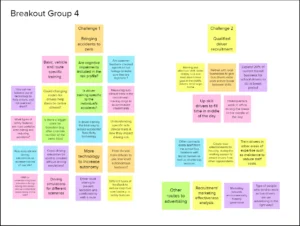
For the afternoon session, National Express representatives delivered presentations covering challenges 3-5, these were followed by a second round of breakout group discussions and ideation process which was reflected on another Mural board which can be seen below.
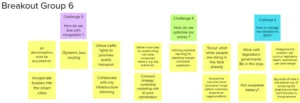
The ideas developed during day 1 breakout discussions were then clustered into topics to form the working topics for the rest of the week, by the management team and the National Express representatives.
Day 2
Day 2 started with the clusters of topics from the previous day being presented to the ITT participants. The working groups for the rest of the week were then formed. There were 7 groups formed in total and I joined group 4, which focused on Technology to Reduce Accidents to Zero.
Our group was mostly made of members with a Mechanical Engineering background. The participants of the ITT came from various backgrounds such as Environmental Sciences, Business and Management, Psychology, Electrical and Chemical Engineering, Mathematics and Computer Science. In addition to this, due to the in-person group working aspect and the involvement of the remote participants, it was in fact very easy to communicate with all participants of the ITT to develop and exchange ideas, even if they were not in your group. During the afternoon, we had a chance to discuss and share ideas developed with National Express representatives to receive further feedback and suggestions.
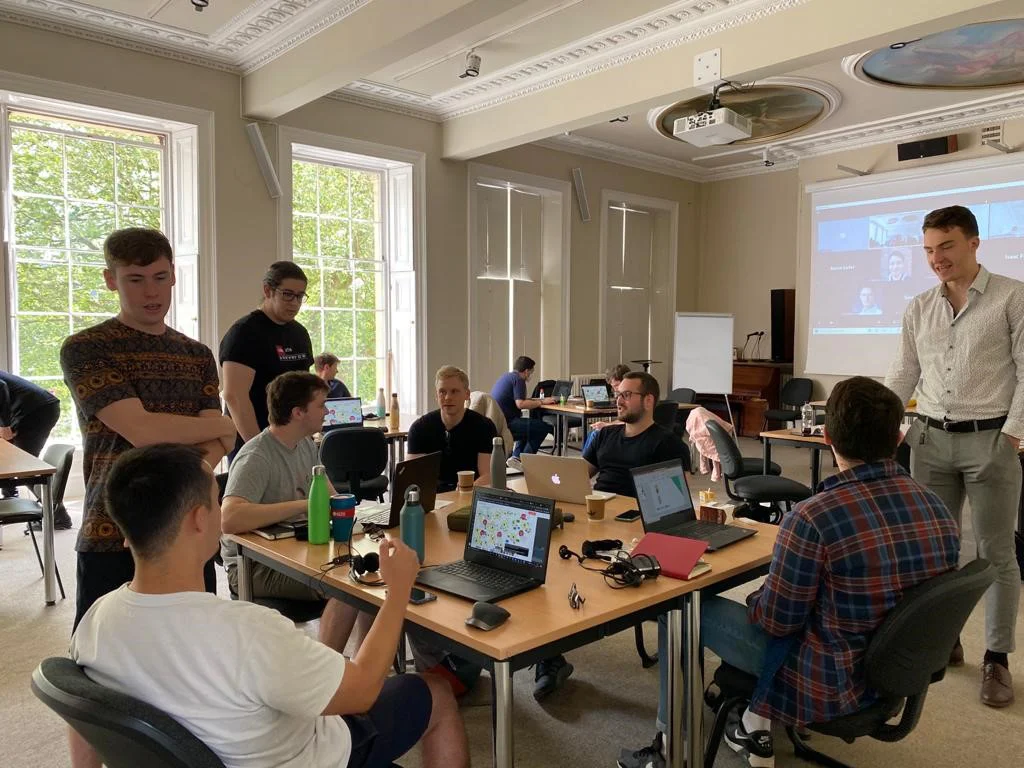
Unlike the previous two ITTs I have attended, day two finished with the opportunity to socialise and spend time together in person at a conference dinner at The Real Italian Pizza Company. This was greatly appreciated by all, and we look forward to be able to do more in-person socials and conference dinners going forward.
